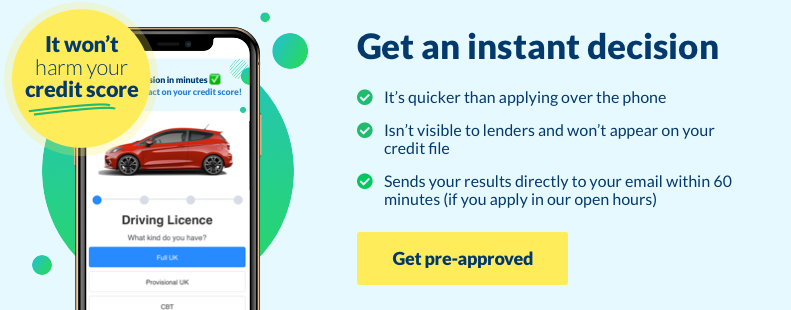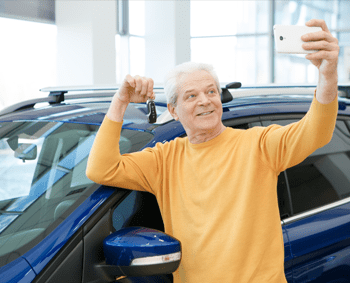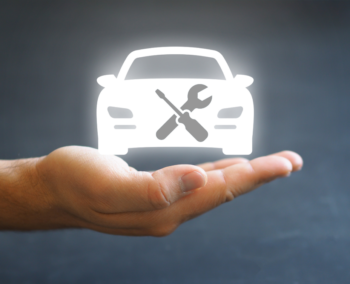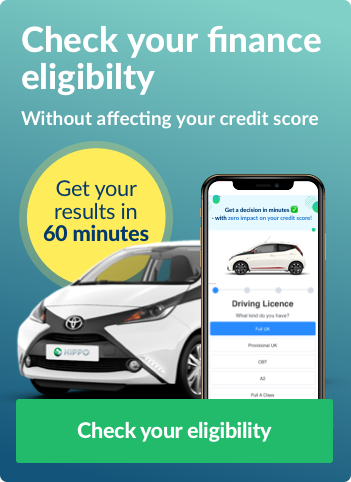
When it comes to buying your new car, there are several decisions you need to make – not least of which is how to pay for it.
On the face of it, there are two ways – pay for the car outright or finance it, meaning you pay it off over time.
Is it really that simple, though, and what is your best way to buy a new car?
Buying a car with cash
Cash is the most straightforward way to pay for your car. Once you’ve paid for it, the car is yours, you’re not tied down to any contracts, and you don’t have to worry about interest or fees.
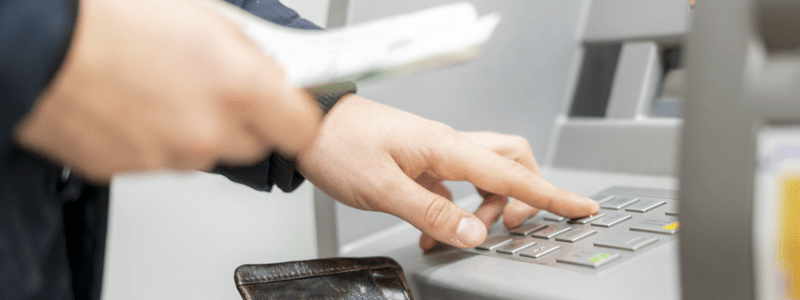
The only thing you might need to organise in advance is checking your card transaction limit or giving your bank a heads up that you’ll be making a large purchase.
The majority of Britons don’t have savings, so if you’re one of the few that does have enough put aside to purchase a car, make sure you also hold enough back to cover any emergencies that may arise.
It would help if you also considered whether this is actually the most cost-effective way to purchase a car. If you have other debts with a higher interest rate, you may be better off using your savings to pay off those first.
Paying by cash is ideal for someone with bad credit, as there will be no credit checks or applications to be approved. However, if you need to build up your score – to get a mortgage, for instance – it may be worth paying a larger deposit with your cash and taking out a smaller finance deal.
Buying a car on credit card
With a 0% interest rate on a credit card and a large enough credit limit, buying your car this way could be cost-effective too.
You’ll also have the added benefit of credit card protection if something goes wrong.
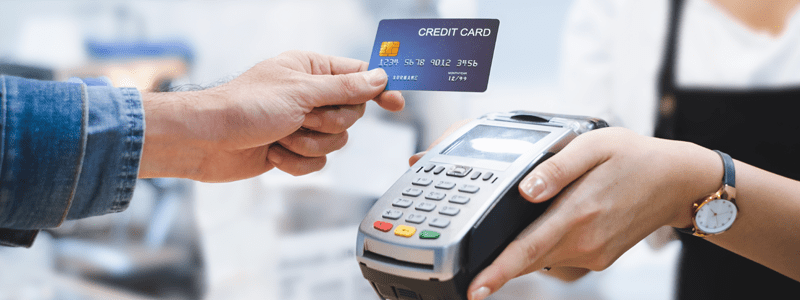
But paying this way may limit your options, as some will not accept this method of payment. Others will charge a fee, which would add to the cost.
It’s also important that you ensure you can pay off the balance by the time your promotional 0% rate ends, or else you could be paying thousands in interest.
Buying a car with a loan
Taking out a loan to buy a car is another option, but even with this way there are a few ways to go about it.
Friends and family
If you can borrow funds from friends or family, you can buy the car outright with cash. It’s a good alternative if bad credit prevents you from getting another type of loan or finance.
However, if something goes wrong and for any reason, you can’t pay the money back, it could jeopardise your relationship with them.
If you’re going to go down this route, perhaps consider drawing up a contract with them that protects both of you. Other options could be to opt for joint or guarantor car finance.
Or alternatively, borrow less money to simply put down a larger deposit on a car and take out finance for the rest.
Buying a car with a personal loan
If you have a decent credit score, you could get a personal loan from your bank or building society and pay for the car outright.
With a personal loan, you’d still be spreading the cost of the car, but the vehicle wouldn’t act as security on the money you borrow.

It’s still a good idea to think about affordability of your monthly repayments on the loan now and in the future.
If your financial circumstances change and you couldn’t make repayments, you could default, which would badly damage your credit rating and affect borrowing in the future.
Buying a car with a peer to peer loan
Peer to peer loans (also known as social lending) is a relatively new way to find funds for a car. If you want to borrow money this way, a peer to peer website will match you up with individuals who are willing to lend it to you rather than go through a traditional financial institution like a bank or a building society.
The advantages of borrowing money to buy your car this way is that they offer lower interest rates than you would get with a bank, for instance. However, it’s really only appropriate for those with good credit ratings, as the interest rates can be very high if you don’t.

Buying a car on hire purchase
Hire purchase (HP) is one car finance option with which you can spread the cost of the car over a number of years.
You can put down a deposit if you wish, then pay the balance, alongside interest, in monthly instalments over an agreed amount of time (usually between one to five years).
Buying a car this way means you won’t own the car until you have made all the repayments. If you have a poor credit score, you may struggle to be accepted or may not be eligible for the lower interest deals, although there are lenders who will consider those with a less than perfect financial history.
Monthly repayments are fixed, and you can influence how much you pay by the amount of deposit you put down at the start (a lower deposit will mean higher repayments and vice versa).
Find out everything you need to know about how Hire Purchase works.
Buying a car on personal contract purchase (PCP)
With a PCP car finance deal, you pay a deposit followed by a series of monthly instalments – similar to hire purchase, but the payments are usually lower.
The difference with PCP is that you’re paying the difference between its price and the predicted value by the end of your agreement, rather than the total cost of the car over the term of the loan. This is why the monthly payments are lower.
At the end of the term, you have the option of part-exchanging the car for a new one and taking out a new PCP deal or paying a lump sum payment to own the car outright. Alternatively, you could hand the car back and walk away.
An advantage of PCP is that the monthly payments are lower, and you have the option of trading up to a new car every few years.
If you want to keep the car at the end of your agreement, though, you’ll need to have funds to pay the larger final payment.
You can find out more about Personal Contract Purchase and how it works here.
Personal contract hire (PCH)
Personal contract hire, or leasing, is another way to finance a car. As with most car finance, you pay a fixed monthly amount for the use of the car.
However, at the end of the term, you hand the car back. Effectively it’s like a long-term car rental.
With PCH, servicing and maintenance is included, so it can work out cheaper overall. However, it comes with restrictions – such as mileage, and if you exceed these, there can be hefty penalties.
If you’re looking for more flexibility in spreading the cost of your car finance but don’t want to be tied down to lengthy contracts or expense and responsibility of servicing the car, PCH is a good option.
Lease purchase
Lease Purchase (LP) works similarly to PCP, spreading the cost of the car over an agreed period of time on fixed monthly payments.
However, at the end of the Lease Purchase deal, you must pay the lump sum balloon payment. After that, you can either keep the vehicle or part exchange it.
The monthly payments tend to be lower than HP or PCP deals, however, the balloon payment can be quite sizeable depending on how much you’ve put down at the start.
Find out more about Lease Purchase and how it works.
What is the cheapest way to buy a car?
They say cash is king and generally this is the case when paying for a car too. You won’t have to pay any interest or fees or be tied to a contract.
Cash can limit your options when it comes to buying a car, though. If you opt for car finance, there are a wealth of affordable options out there along with attractive deals such as no deposit finance.
What is the smartest way to buy a car?
The smartest way to buy a car is always going to depend on what suits you. Do you want to own the car? Do you want lower payments? Do you like the idea of having a new car every few years?
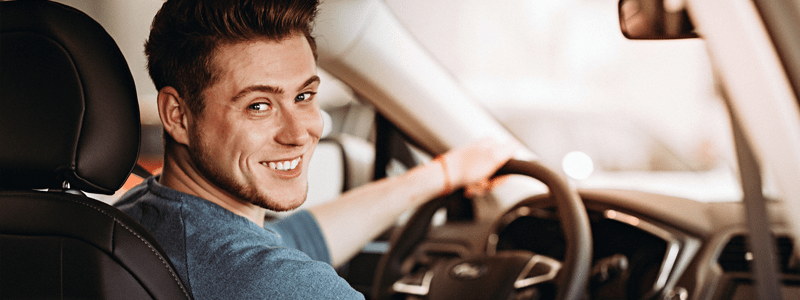
Go through all your options and see what would fit around your financial circumstances, as well as what you’re looking for when it comes to having access to a car. Find out what to look out for when you finance a car.
